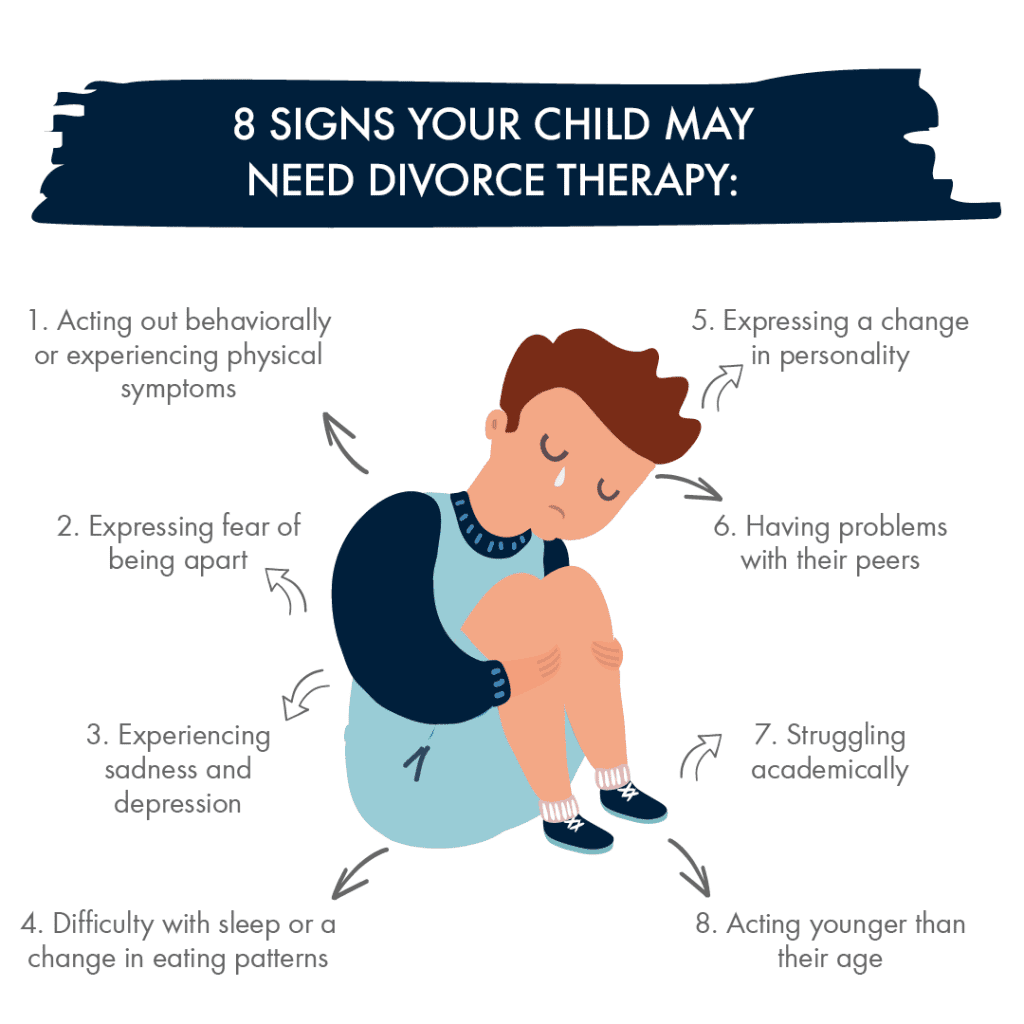
While parents are busy trying to manage the roller coaster ride of divorce, time and attention should also be paid to their children to ensure they are able to manage all their thoughts and feelings, too. This is often a complicated, exhausting, sad, and unpredictable time for everyone. Parents can miss something. Children sometimes feel they cannot share their true feelings. It’s a time of unrest.
However, in the early stages of separation and divorce, there are many things that parents can do to ease the pain of the impending divorce. For example, parents should work hard to tell their children about the divorce together, if possible. Reassure your children they are not the cause of the divorce. This is key especially in the beginning because many children feel this way. For example, they might feel if they did better in school, didn’t’ fight with their sibling, or were nicer then their parents wouldn’t get divorced. You will need to remind them often of this.
Children do better when they are able to maintain an individual, loving relationship with each parent without feeling they have to choose.
And telling them you love them and they will be taken care of can never be said enough. Parents who present a united front (despite your feelings) help ease the pain. They should be open, willing, and mindful of the questions children have or may have (during the family conversation) and answer them, even the difficult and challenging ones. It’s also important for parents to be consistent with parenting time (picking them up and dropping them off). Reinforce their relationship with each parent. Children do better when they are able to maintain an individual, loving relationship with each parent without feeling they have to choose. This is key and critical to their emotional well-being and growth. Be cognizant of not putting them in the middle of a disagreement where the children feel they have to pick sides.
It’s important to remember there once was a time that you loved their mother/father. They will have loyalty to each parent and shouldn’t be made to have to choose one parent over the other. This also means not putting the children in the middle of contentious topics or custody or child support issues. All of these situations cause children to experience greater stress and anxiety.
But, what if, despite your best intentions, your child or children are still struggling? What are some of the signs and symptoms that would be present that would indicate they need help beyond what you can do for them, like divorce therapy for children?

Many parents are not sure what to do when they feel their child or children are struggling. After all, this is a major life transition for everyone in the family and no two people in the family will experience the divorce in the same way. It is a roller coaster.
If, as a parent, you choose to seek outside, professional help, there are a couple of divorce therapy and support for children routes to consider:
Yes, divorce is very challenging. But, starting off the process in the best possible way, does help children. And even if after all your energy, your child or children are still suffering, there is a lot of professional help out there. Don’t be shy or resistant to getting the help your children (or yourself) need at this time. It’s learning how to move through this chapter in your life in the best way you know how.
©2011-2025 Worthy, Inc. All rights reserved.
Worthy, Inc. operates from 25 West 45th St., 2nd Floor, New York, NY 10036